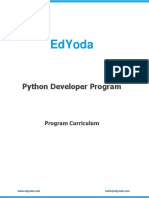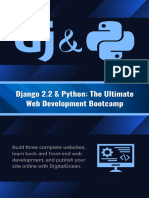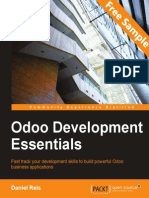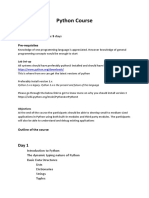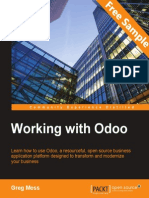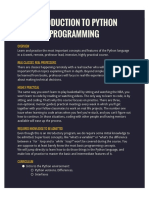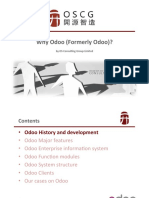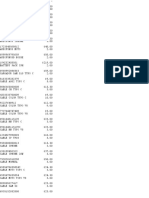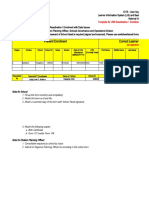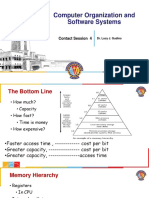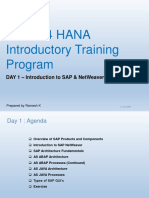0% found this document useful (0 votes)
211 views4 pagesPython For Odoo
The 'Python for Odoo' course aims to teach students how to use Python for developing and customizing Odoo ERP applications, covering essential concepts, module development, database management, and automation. It includes hands-on training with practical exercises, real-world projects, and case studies. By the end of the course, students will be equipped with the skills needed to create tailored Odoo applications that meet specific business requirements.
Uploaded by
Htet wathan OoCopyright
© © All Rights Reserved
We take content rights seriously. If you suspect this is your content, claim it here.
Available Formats
Download as PDF, TXT or read online on Scribd
0% found this document useful (0 votes)
211 views4 pagesPython For Odoo
The 'Python for Odoo' course aims to teach students how to use Python for developing and customizing Odoo ERP applications, covering essential concepts, module development, database management, and automation. It includes hands-on training with practical exercises, real-world projects, and case studies. By the end of the course, students will be equipped with the skills needed to create tailored Odoo applications that meet specific business requirements.
Uploaded by
Htet wathan OoCopyright
© © All Rights Reserved
We take content rights seriously. If you suspect this is your content, claim it here.
Available Formats
Download as PDF, TXT or read online on Scribd
/ 4











